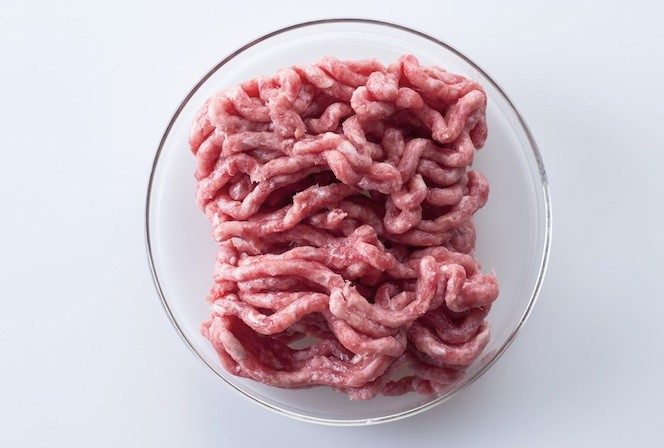
You’ll eat glorified cancer and be happy?
As the globalists continue to promote meat alternatives, a new concern has arisen regarding one of those alternatives — lab-grown “meat.” Namely, it is the fact that there have not yet been hard tests done to dispel fears that these products may cause cancer.
The lab-grown meat industry’s grappling with this question is detailed in a new Bloomberg report.
As the report explains, the materials used in many lab-grown meat products — immortalized cell lines — replicate eternally just like cancer does. While these cell lines have previously been used to perform scientific research, never have they been employed in food for human consumption.
As Bloomberg’s Joe Fassler writes:
“Immortalized cells are a staple of medical research, but they are, technically speaking, precancerous and can be, in some cases, fully cancerous … [but d]on’t worry: Prominent cancer researchers tell Bloomberg Businessweek that because the cells aren’t human, it’s essentially impossible for people who eat them to get cancer from them, or for the precancerous or cancerous cells to replicate inside people at all.”
Vast amounts of money have already been invested in the lab-grown meat processes that proponents claim is the future of food. The “Big Three” in the industry — Believer Meat, Eat Just, and Upside Foods — are collectively the recipients of $1.2 billion in venture funding as the companies strive to get their products ready to be sold in stores.
These companies are also supported by globalist outfits like the World Economic Forum, which famously published a “Planetary Health Diet” that uses alternative and plant-based protein sources.
Liberal celebrities have jumped on the bandwagon. In 2021, actor Leonardo DiCaprio bought an unspecified stake in the companies Mosa Meat and Aleph Farms, both of which make lab-grown meat.
DiCaprio went so far as to put out a statement filled with glowing praise for their meat-engineering technology, writing: “One of the most impactful ways to combat the climate crisis is to transform our food system. Mosa Meat and Aleph Farms offer new ways to satisfy the world’s demand for beef, while solving some of the most pressing issues of current industrial beef production.”
Last year, Upside made a significant achievement by becoming the first of these lab-grown meat firms to be granted pre-approval from the FDA to put its products on the market.
The Big Three frequently claim that their products are real meat, and like to use terms like “cultured meat” and “cell-cured meat.” But the difference between their products and actual meat is that the former, when put in the right conditions, will replicate infinitely like cancer.
Cancer researchers who spoke to Bloomberg said that “because the cells aren’t human, it’s essentially impossible for people who eat them to get cancer from them.” But though they assure us these animal cells cannot replicate inside the human body, there is as of yet no long-term safety data for “meat” that comes from these immortalized cell lines.
The National Pulse detailed the history of immortalized cell lines and their use in science:
The first immortalized human cell line was produced from cancer cells taken from Henrietta Lacks in 1951, at Johns Hopkins Hospital, in Baltimore. The sample was taken from Lacks without her informed consent, and her treatment is held up as a test case of failed medical ethics. Despite the ethical controversy that still surrounds their use, the HeLa line of cells, as it is known, has been responsible for a number of scientific and medical breakthroughs. Immortalized human cells were used to develop a number of the COVID-19 shots, for example.
Producers of lab-grown meat favor immortal cell lines for much the same reasons scientists do. Since normal cells will only go on dividing so long, constant samples would need to be taken from animals to continue production. As well as increasing costs, this would also give the lie to the claim that lab-grown meats are “cruelty free”, since animals would still need to be raised – and ultimately slaughtered at some point – to produce them.
Yet while some companies claim they have created cell lines that “don’t share any genetic signatures with cancer cells,” two of Bloomberg’s scientific advisors had their doubts about those assurances.
In fact, some of the companies in the industry are abandoning the use of immortalized cell lines in favor of slower methods. That is the case of IntegriCulture and Aleph — whose CEO said use of such cell lines will probably make for a high barrier to “customer acceptance” of products made with them.
Nevertheless, Eat Just is among those that is refusing to abandon the use of immortalized cell lines, pushing forward with plans to build sufficient bioreactors to manufacture 30 million pounds of their “meat” per year.
The question is: How will buyers react to not only the quality and taste of the product, but also to the knowledge of how it’s made?
Already, the plant-based meat industry’s bubble has burst, with sales plummeting and hundreds of jobs being cut at companies like Impossible Foods and Beyond Meat.
Will lab-grown meat suffer the same fate?




